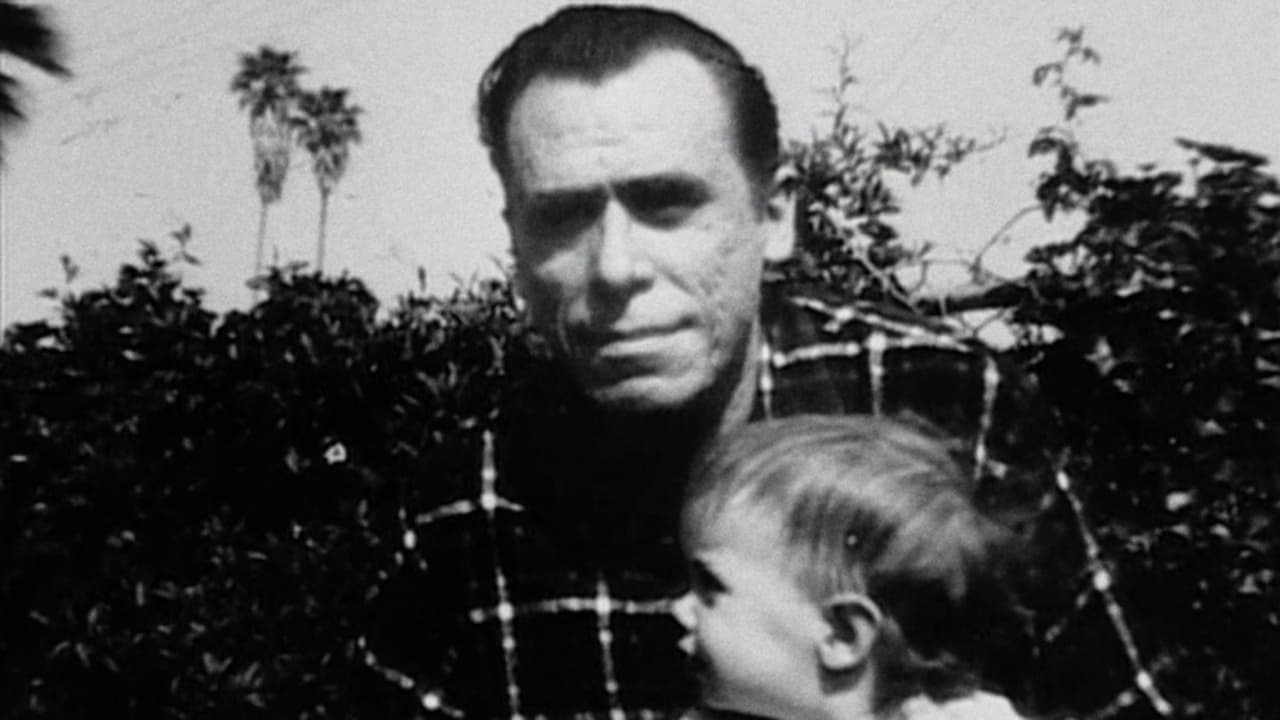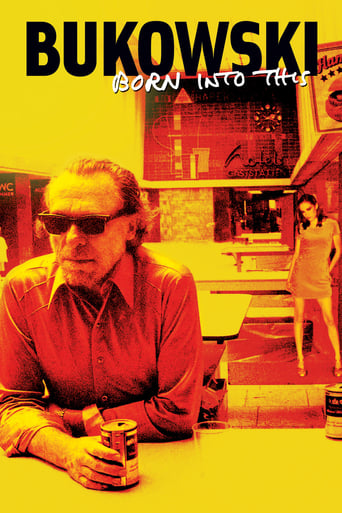

SERIOUSLY. This is what the crap Hollywood still puts out?
... View MoreGood , But It Is Overrated By Some
... View MoreIf the ambition is to provide two hours of instantly forgettable, popcorn-munching escapism, it succeeds.
... View MoreIt’s fine. It's literally the definition of a fine movie. You’ve seen it before, you know every beat and outcome before the characters even do. Only question is how much escapism you’re looking for.
... View MoreBukowski: Born Into This (2003): Dir: John Dullaghan / Featuring: Charles Bukowski, Linda Lee, John Martin, Bono, Marina Bukowski: Documentary about writer and poet Charles Bukowski whose work has achieved cult standing with his dark, cynical and somewhat comical view of life. Director John Dullaghan presents interview footage of Bukowski in colour and black and white where he discusses his abuse as a child as well as various sexual flings until he married Linda Lee, the one woman who seemed strong enough to tolerate his cynical and abusive nature. He worked at a post office and viewers are informed of the time he quit and his method of re-hire. John Martin was his editor and publisher who enabled Bukowski a salary while presenting his writing in print. Various celebrities comment on his work and behaviour but their contribution, however merit, do not add so much as distract from the more important subject, which is actual footage of Bukowski himself. Celebrities can tell much but they seem more as a marketing tool than an important collaborator. John Dullaghan's film should appeal to those scholars who study the intellect of men like Bukowski. He is presented as a man who saw only the dark side of life but delights us with his humorous presentation of it. He was born into a world where he saw no hope but scoffed the grim reality of humanity. Score: 8 ½ / 10
... View MoreIf you go into this film without ever haven read Bukowski, it can be a jarring experience, but rewarding nonetheless. I love his stuff, most of it anyway, and never really had a chance to see him while he was alive. His book Post Office is perhaps the rawest and perfectly written piece of literature that I've ever read. The documentary does him justice in that it captures him in his perfect drunken, creative, and impossibly complex environment. Filmed over 10 to 15 years, it is not hero worship in any sense, it's as raw and revealing of a tortured, yet extremely funny individual as one can capture on film. We see his relationships with women unravel and patch up, the dusty daily grind of a regular job that he hates, his horrible childhood which would serve as material for Ham on Rye, his struggle with celebrity in the twilight of his life. Like all great artists Pryor, Lenny Bruce, Van Gogh, etc., Bukowski uses the pain and suffering of everyday life to his advantage, the result is a great revealing documentary that opens him up and makes him accessible to even his most die-hard fans. Much better than Barfly.
... View MoreNothing wrong with Born Into This, I thought it brilliant. It simply showed one completely individualistic and unique person that never told people what they should do or or how to lead their lives As you get older you basically settle down into the life of a sheep - always a slave to something. Whether it be marriage / a relationship, the job, or keeping up with the neighbors ("ooh dear, they have a new car with 2 cup holders. Better go get one that has 3") etc etc. He just didn't give a toss about any of that stuff and basically kept the same attitude throughout his life. At the very least he kept true to his "endurance is more important that truth" saying
... View MoreCharles Bukowski is probably the greatest American poet, who, to this day, remains largely unrecognized by the literary establishment in the United States. His greatest recognition came in and still is in Europe. He's the poet that college professors love to dislike; because, many of them tried to do what Bukowski did and failed. Bukowski became a cult, literary underground figure in the late 50's, known only to the few thousand fellow small press readers and publishers of the time. He wrote of his experiences in flop houses, bars, and women in a very distinctive, one-of-a-kind, formless fashion. He worked for several years for the post office in two different stints in the 1950's and 1960's. Bukowski wrote on his own terms and never compromised, thanks to his $100 monthly "grant" from a man that would become his lifelong publisher, who started Black Sparrow Press. For the next 24 years from January of 1970 until his death on March 9, 1994, Bukowski wrote stories, poems, and novels, finding time in his later years to replace drinking with racetrack betting. This is an extraordinary documentary, capturing Bukowski in the 1970's and 1980's mostly, telling the story of his incredible life and alternatively capturing private moments that define him as well as defy his reputation. The film uses interviews of those that lived with him and knew him to portray a man that waded through an interpersonal sewer of a life, only to conquer the literary world on his own terms and make a decent living from it to boot. It's the story of a man, a writer, who just lived life as it presented itself to him. He had an unflinching ability to face the realities of his life with charm, wisdom, and a determination that even he would not be able to recognize. Whether he spoke of his upbringing, his drinking, his laziness, his unattractiveness, his women, and especially about love, death and sex, he remained steadfast in his cynicism laced with humor, much like the comic artist Robert Crumb. Most of the highlights in the film occur when Bukowski is either conversing or reading his own work. He reads his own work in a world weary tone of voice that possesses a cadence that seems to say he's tired of it all. Just then though, he hits us with another gem, another truth about ourselves and the world around us. See this at all costs. **** of 4 stars.
... View More